Who Bought SSL? Inside the Acquisition That Surprised the Console World
What would YOU do if you found yourself leading one of the most coveted names in audio?
That’s the enviable position of James Gordon, CEO of Audiotonix. In December, his company stunned the sound production world by acquiring SSL from its famous former owner, Peter Gabriel — and presumably setting the storied console manufacturer on a new course.
While “Audiotonix” isn’t a household name, the brands it was already managing before the Solid State Logic acquisition certainly are: DiGiCo, DiGiGrid, Calrec and Allen & Heath are all under its auspices, the result of an ongoing consolidation in the console world. In 2014, DiGiCo merged with Electra Partners, a UK-based buyout firm (which itself was renamed Epiris in 2016) that had purchased Allen & Heath in 2013, followed by Calrec in 2014.
Put those companies together, and you’ve got a console-centric enterprise that’s more lucrative than one might think. In February, 2017 the M&A action continued as Epiris sold it’s 58% stake in Audiotonix to French buyout business group Astorg for 203 million pounds sterling, meaning the total valuation of Audiotonix at the time was about 350 million pounds sterling, or $481,845,000 at today’s exchange rates.
It all added up to a 4.8x gain on Epiris’ original investment, as Audiotonix went to a private equity firm with multi-faceted interests that reach far beyond music. Astorg’s portfolio includes such diverse firms as Surfaces Group (abrasive tools for high-end materials), Autoform (software solutions for sheet metal forming), Parkeon (parking management solutions), HRA Pharma (specialty pharma focused on women’s health), and many more.
In other words, SSL has gone from a stand-alone operation based out of Oxfordshire, England to being plugged into something much, much bigger. No doubt, the expectations are that there will be a universe of new synergies to leverage along the way.
Many in the audio field are naturally wary of all these corporation games, but there’s reason to be optimistic that SSL’s absorption into all this will be for the better. That hope starts with James Gordon, whose connection to audio goes all the way back: As a young boy he routinely accompanied his father to work at EMI, where he caught the bug early for the magical action of pushing faders.
When Gordon studied music technology and sound recording at Kingston University, he was hooked on sonics. His early career path took him to the console maker Soundtracs, which officially became DiGiCo in 2002. Gordon rose from sales director at the company to Managing Director in 2007, then Group CEO of DiGiCo, Allen & Heath and Calrec in 2014.
And now they’ve added one more, very notable name under the Audiotonix umbrella. In this interview with SonicScoop, Gordon discussed what’s coming next for SSL and everything attached to one of the few truly flagship brands in audio: its technology, people, current customers, future users — and one very heavy legacy.
James, how would you characterize the overall global console market today — What are the opportunities for a company like Audiotonix and its brands?
Make great products, and work really hard, engage with your customers, and it’s a great place to be.
So it’s a market that’s continuing to grow?
Yes, it’s a very wide market now, and more than 90% of what we do is exported — the majority of our sales go overseas from the U.K. to about 90 countries around the world. And our product portfolio goes from a couple of hundred dollars up to half a million dollars. So it’s a very wide spectrum of product, whether you’re talking about really high-end sports, OB-truck, Calrec market, or right down to ZED analog small four- or six-channel mixers for Allen & Heath.
So we have a very wide product portfolio, which we’re continually growing. DiGiCo has just announced a move into installed sound. They’re making a box called 4REA4 which is a processor rack that’s like a console in a box that can connect into the rest of the infrastructure. Allen & Heath is working on some new DJ products at the moment. So we cover a very wide spectrum.
And I think all areas of public consumption of music now or performance audio expectation is far greater than it was, so people invest more into the quality of what audio they put out. There’s always a demand now for new technology and an improved audio experience.
So I think it’s a very positive outlook for us as a group as long as we keep innovating, and that’s the key: We invest a huge amount of our money into R & D. That investment across R & D is to make sure that the brands that we have innovate and help those people that are tasked with making things sound good, to make them sound better.
On the other side of that question, what are the biggest challenges that a console-centered entity such as Audiotonix currently faces?
At the moment, our big thing is components. The electronics world isn’t just revolving around our industry, and obviously we’re buying components that other electronics companies buy. We have challenges that face us every month, and the challenge at the moment is that some of the lead times on some of the components within our products is lengthening.
Whereas we had a six-to-eight week window for lead times, now some of them are going up sixteen, eighteen weeks, which means we have to be either a lot more confident in our investment choices in components, or a lot more careful in how we invest. Fortunately we’ve not been in this position, but we don’t ever want to be in a position where we can’t supply a product.
The SSL Acquisition: How and Why
Given the landscape of the overall console market we just discussed, why did Audiotonix decide to acquire SSL?
All of the brands we’ve ever been interested in are brands with huge amounts of history in our industry. They’re prestigious, strong brands, and they’re brands that we all care about. I can remember coming to Oxford and being taught on an SSL 4K system in the early ’90s. In fact the guy that trained me still works here!
We’re interested in brands with that sort of history and the customer loyalty that you get with that. Our industry is a fabulous place for brands that get huge amounts of support and loyalty from their customers, and SSL is one of those brands. It’s a piece of history in our industry that needs to be looked after, frankly. Our job is to strengthen it up, make some cool products, spread its wings maybe into some different areas, and grow the brand.
When did the idea to acquire SSL first arise, and then how did the transaction unfold from there?
We started talking about it probably two years ago, in loose terms. As in, we expressed that if it were ever on the market we would be interested. And then probably about a year ago, those conversations got a bit more serious. The process was formal negotiation, as with these things, but it’s also a lot of history here in making sure that the brand is looked after.
The biggest sort of surprise for us was about 10 days before we actually were due to sign, and it was all going to go forward. That’s when Peter Gabriel’s advisor said to us, “Can we invest? Can Peter come back in because he likes what you’ve got planned.” That was a massive accolade, because it wasn’t expected. We genuinely thought that he was selling and 100% going. And then he just asked if he could be part of Audiotonix, which is a great honor to have him want to join us.
That should carry on some that lineage with the company, because he and the team have done a very good job of bringing it back from where it was in 2005, which is probably the darkest time in its history.
What was going on in 2005 specifically that makes you say it was a dark time for SSL?
I wasn’t here at that time, but that was when Peter invested and Antony David took over running the ship. It was, I think, a transitional time in our industry — probably there were a lot of studios that were reducing in size. And those larger desks that they were selling then probably didn’t have the same demand that they had before.
Now that SSL is under the Audiotonix umbrella, what do you see as being the new possibilities for SSL? What will that brand be capable of doing now that it couldn’t on its own?
Well, it’s now part of a very much bigger R & D team. So, there’s definitely a lot of intellectual property and know-how that we have on our team that should support each other, and that will be very much a two-way street. I’m pretty sure the guys here will learn, as will we, from some of their ideas.
They also get the benefit of having, frankly, the best manufacturing team. I think our ops team in Audiotonix is phenomenal there, so I think that they’re the things we can add. We can help them make products better, better componentry, or better design. And I think we’ll be able to help them manufacture more efficiently as well. It will mean that at the end of the day the customer ends up with a better product.
Joining the Family
While SSL is well known for its studio offerings, it also has myriad live and broadcast offerings, some of which overlap with DiGiCo, DiGiGrid, Calrec, Allen & Heath. How will that overlap be managed throughout your brand family?
Well, we already have that. I mean, as you know, with DiGiCo, and Allen & Heath it’s a little bit of a crossover. And with Calrec and DiGiCo there is also some crossover, but not so much so with Allen & Heath and Calrec. The nice thing about different brands is they have their own unique culture about them, and customers like buying from one or another based on their culture. And having options that offer different functionality or different workflow is fairly cool.
I think it’s fair to say, when you look at live sound, rental companies tend to purchase into brands that they trust, they know they’re going to be looked after, and the product’s going to be supported, because that’s a big deal when you’re touring around with a product. I think we’ll be able to add some value in that respect for SSL as well.
You just gave me insight into what rental companies are looking for from their consoles. Do you have an opinion of what people are looking for in the studio world right now from consoles?
Well, that is very exciting because obviously we all know where SSL’s real heritage is. On my first day here [working with SSL] as you can imagine, I had lots of questions. And then on Day Three or Four, I’ve got R & D guys coming in with, “We thought up this idea, but we don’t know how we can make it,” or, “How can we manufacture this at a price that would be competitive?” The history of the guys here is studio. They have amazing ideas of what they would like to do.
As a group, we didn’t have a really strong studio [segment with] 40-plus years of heritage, but we do now. There’s huge value in that for us. And there’s huge knowledge here in the company on what studios need, and what they’ve always wanted, and workflow. Going back to when I had to push faders for a living, SSL automation was way ahead of its time. It was fantastic to work on. It worked with you as an engineer rather than against you.
And I think that culture is very much in the building: You walk by people’s desks and they’re musicians. There’s that vibe in the company of music. And I’m sure we will see some great products in the future.
Sound Business Decisions
Will all current SSL employees be retained, or will there be layoffs as a result of this acquisition?
People here have asked me, “Will there be changes?” And normally in these situations, the CEO will go, “No, there will be no changes.” Now, I’m afraid that’s not me. There will definitely be changes. But they’ll be positive changes. There’ll be things we want to do to make the brand stronger. We’ll invest in things.
When you do that, when you change something, there are some people that just jump on and want to be part of the change, and actually, a lot of them are coming up with ideas. We had our first meeting with the marketing team up here a few weeks ago, for example, and they are very enthusiastic about things they want to do, and things they haven’t been able to do. They’re very much on the bus, if you’d like.
There’ll be others that are a little bit nervous because when things change, people are nervous of change. So, there’ll be some that are a little apprehensive of it. And they will probably see some positive things happening and then get on the bus.
And then there are some that just won’t like the change, and I don’t know who they are. All I know is we want to make this company better, stronger, more successful, have more products and appeal to its customer base. Anyone that wants to get into that and be part of it will definitely be welcome here.
No one has been laid off yet. I don’t have a list. We don’t have any pressure to do it. We are passionate about this industry, and we want to make this company better. We didn’t buy it to stop it — we bought it to grow it. It’s not going to get rebranded, and we’re not going to brand other things with it. The culture of the brand is the most important thing.
Speaking of SSL culture, you had mentioned Peter Gabriel before, who was a co-owner of SSL starting in 2005. What imprint would you say he left on the company in that time?
I wasn’t working here when he was actively involved, but I think it’s fairly clear he was a product guy and very passionate about our industry, wanting to make things better for musicians. Definitely into the way things worked and sounded. We’re due to get a visit from him soon, and I hope he’s going to talk products!
Past, Present and Future
What should current SSL customers expect from the new ownership? In what way will their service and support be affected?
They should expect it to either continue as it is, or get better. It’s fairly early days for me, but the feedback so far on their support team is phenomenal. I’m slowly meeting sales guys, ops guys, and R & D guys, and the consistent message I get back is, “Our support team is phenomenal.” That’s true of the research we did prior to the acquisition as well. So in that area their customer connection is excellent.
How would you characterize the new SSL customer that you hope to attract now? What kind of user are they?
I think they’re probably going to have to be the same sort of passionate people about what they do in terms of whether it’s live performance or music recording. We’d just like to widen it: What they’ve been doing here at SSL is right, they just need a bit more support and help with it. There’s nothing radical that needs to change.
I won’t mention his name, but I met a very good friend of mine who’s a producer at NAMM, and he came up to me and said, “I’m so glad you guys bought SSL. Please give them a bit more confidence in how good they are.” I think the one thing that stands out is when you walk around and talk to the guys in R & D, they are very passionate about the brand, and the products, and the heritage of what they’re now responsible for. They are making the products that stand up against the history of the brand — big responsibility actually.
This has been an extremely informative interview, James. Here’s my final question then: From the 10,000 foot view, how will all of this affect music and sound?
We’ll play our part. We’ll do what we can. I can’t be responsible for every record that gets released. (laughs) But we will play our part.
And we’ll have some fun. I think one of the things that I would like to hold true in this industry, if there’s one thing we can leave behind, is people should work hard and have some fun in the process, as well. Having a sense of humor doesn’t go far wrong does it?
— David Weiss
Please note: When you buy products through links on this page, we may earn an affiliate commission.







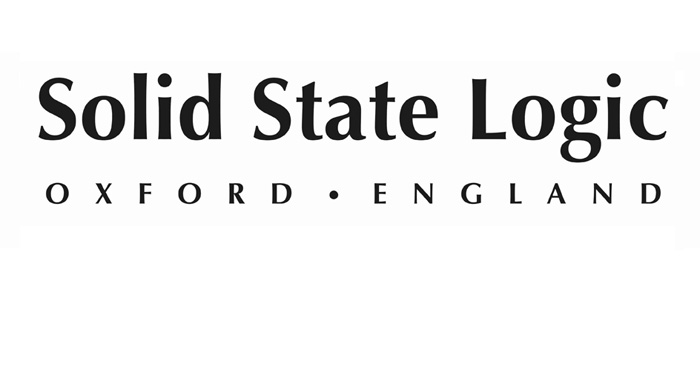
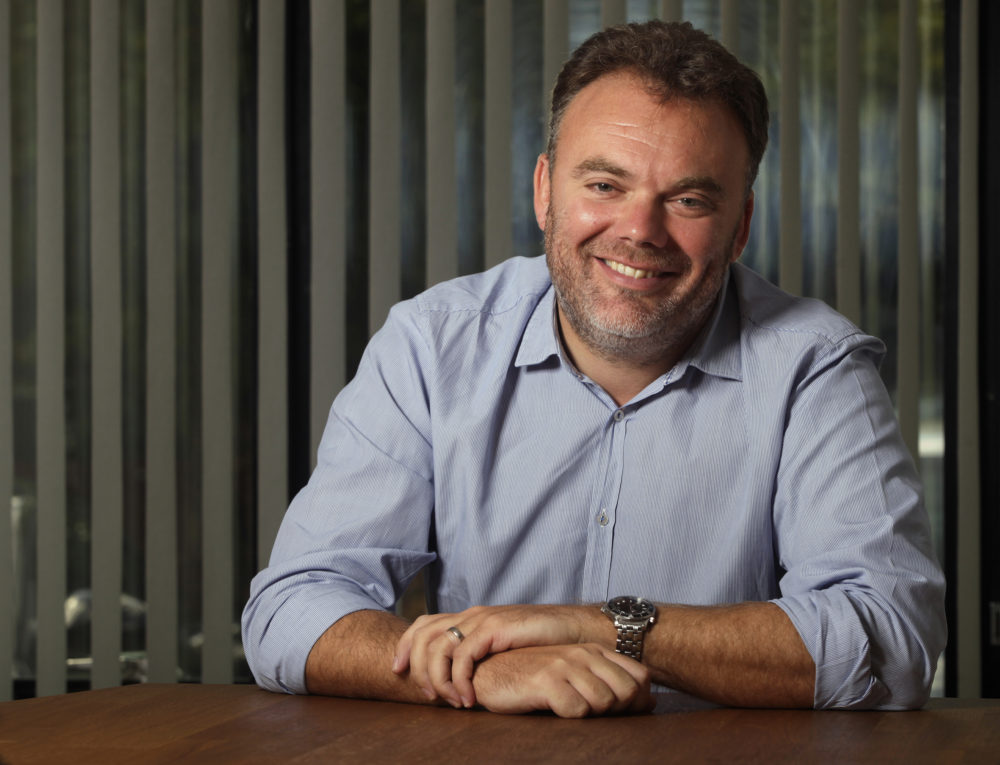
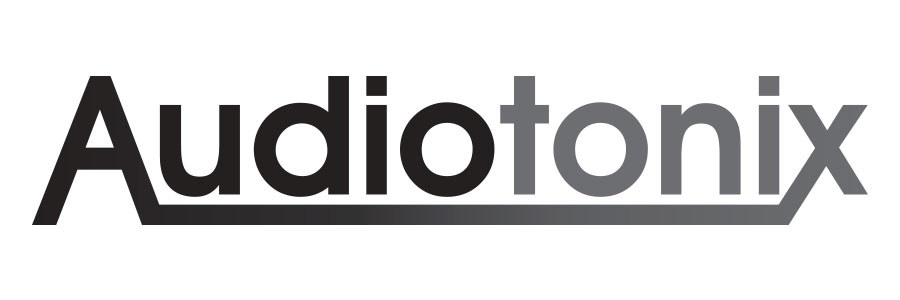
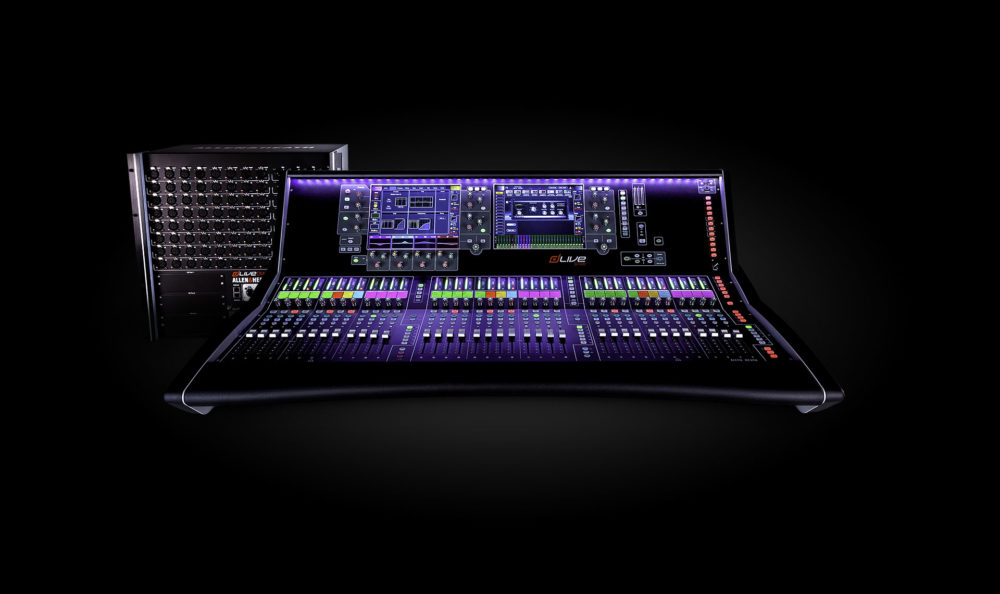

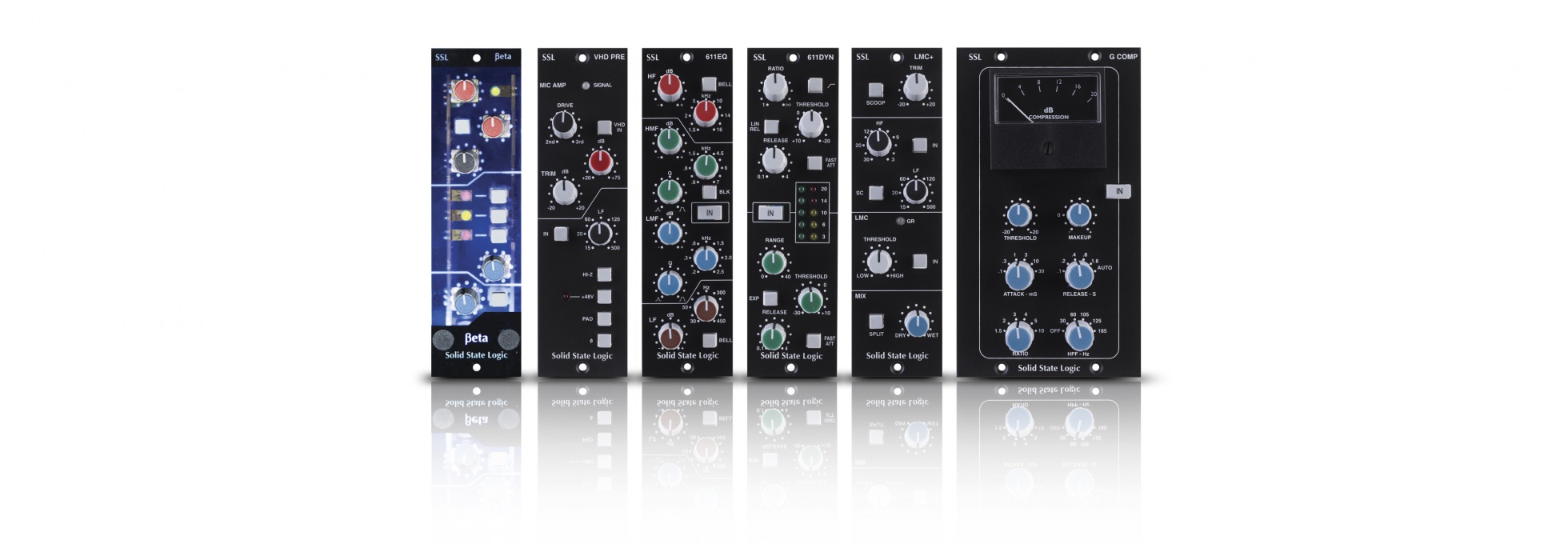
[…] That’s the enviable position of James Gordon, CEO of Audiotonix. In December, his company stunned the sound production world by acquiring SSL from its famous former owner, Peter Gabriel — and presumably setting Read more… […]
[…] That’s the enviable position of James Gordon, CEO of Audiotonix. In December, his company stunned the sound production world by acquiring SSL from its famous former owner, Peter Gabriel — and presumably setting Read more… […]